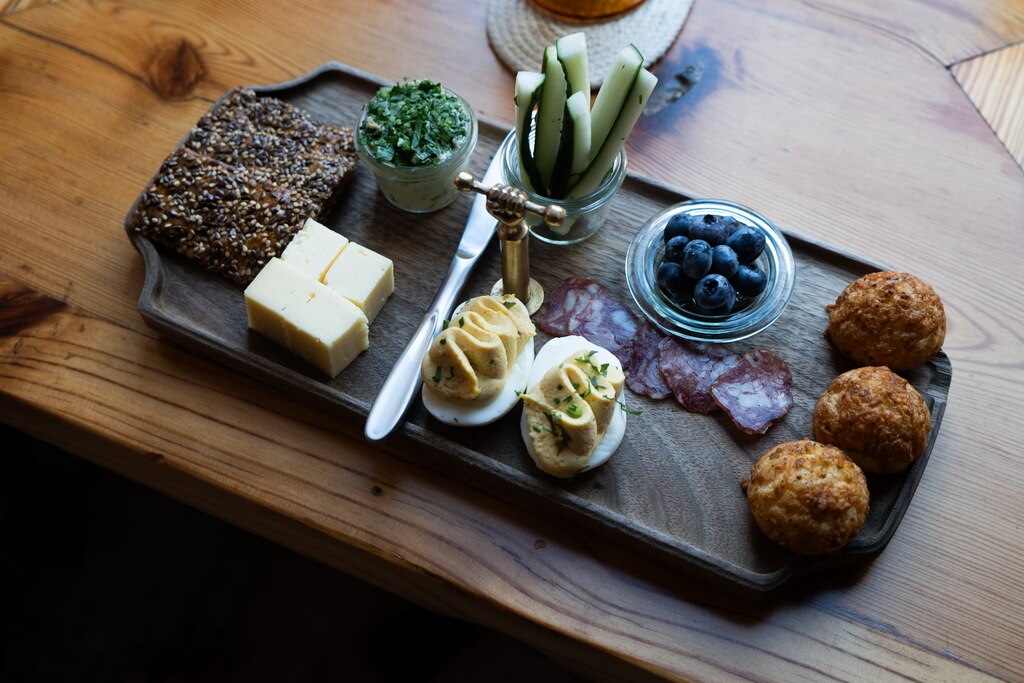He had never seen a fish pepper before. The thin, cone-shaped capsicum with green and white stripes stunned Dan Miller, who, like the fruit, was raised around the Chesapeake Bay.
While studying the pepper at the since-shuttered Five Seeds Farm in the Belair-Edison neighborhood, Miller learned the seeds were spread along Maryland’s Eastern Shore by enslaved Black Americans, that they carry heat 12 times that of a jalapeño and, when cultivated properly, can ground the perfect tangy hot sauce or savory seasoning, as proven by Baltimore’s farm-to-table restaurant Woodberry Kitchen. But Miller didn’t know how little money there was in growing them.
Now almost a decade later, his firm, Steward, is funding both small urban farms and thousand-acre livestock operations intent on producing less conventional crops in ways that don’t overwork or over-pollute the land. The goal is to boost businesses like Five Seeds Farm — which closed in 2016 — that using sustainable farming practices to create food for their region, since these producers are seen as less competitive for many Department of Agriculture grants and, at times, bank loans.
Miller, then working in real estate, had been shocked to find funding for the Chesapeake peppers was hard to come by. Five Seeds Farm owner Denzel Mitchell applied to grants and pitched to banks his goal to scale the crop’s production. But none were interested.
The Baltimore Banner thanks its sponsors. Become one.
“They don’t know what a fish pepper is,” Miller said. “It’s not a global commodity. They don’t assign it any value and they won’t fund it, and so that opened my eyes.”
Read More
Mitchell, who now runs the Farm Alliance of Baltimore nonprofit supporting urban farms around Baltimore, could not be reached for comment, but his Black Butterfly Farm may be among the next round of groups to benefit from the Steward loan program, Miller said.
Spike Gjerde, the owner of Woodberry Kitchen and Baltimore’s only James Beard Award-winning chef, has seen many regional farms perish for lack of funding. These businesses don’t have the same opportunities as producers working through established family farms or operations trading in popular commodities such as wheat and cattle, he said. They have to spend a lot of money up front, and then it’s more expensive to maintain the land in a way that keeps the soil healthy and able to regenerate, otherwise known as regenerative farming.
“It’s a universal problem,” Gjerde said. “Now prices are higher, and most farms don’t make it.”

Despite not growing their own produce, Gjerde’s restaurant received about $280,000 in loan financing from Steward for working with exclusively sustainable and regional growers. It is the only restaurant funded by Miller’s firm, which Gjerde said is because the business has “returned value to local producers” by paying them a cumulative $25 million in the restaurant’s roughly 17-year life span. The loan is said to go toward buoying the eatery through slower seasons and building out their event space.
The Baltimore Banner thanks its sponsors. Become one.
Restaurants across the country have taken up similar initiatives surrounding regenerative agriculture in what’s predicted to be a rising trend for 2024, according to the Sustainable Restaurant Association. That means new investments in farms looking to reduce carbon emissions, diversify their crops and maintain healthy soil and runoff for local waterways. These eateries have been called upon to work as “anchors of change” in their respective food systems, translating the process of sourcing and preparing food from farmers to customers, according to a Forbes report. More than half of land in the United States is used for farming, according to the USDA.
As of Friday, Miller’s firm has over 100 projects funding regional producers, including Fireside Farms and Our Family Farms along the Chesapeake. “The gap in capital isn’t just small businesses, it’s any unconventional grower … even a producer with tens of millions of dollars and very low leverage still couldn’t get the right funding,” Miller said.
The funding allows the businesses to scale up into removing the usual packers and middlemen from the sale of their produce, preventing them from getting taken advantage of by a third-party seller, Miller said.
Every item at Woodberry Kitchen is sourced from a regional farm. Gjerde said he’s purchased peppers from Mitchell, which he used to create his sweet vinegar hot sauce — referred to as Snake Oil in his kitchen — and custom seasoning for rich sauces and proteins. His beloved tavern board appetizer mixes salami from Liberty Delight Farms in Reisterstown and cucumber from Karma Farm in Monkton, among others. It’s a pricey endeavor: There’s no Sysco truck to drop off mounds of produce, but instead individual vendors selling directly to Gjerde.

He’s tried to get other restaurants on board. Often he’s told it’s too expensive or difficult to manage that many producers. Gjerde hopes others take advantage of the new opportunities for funding, but understands how especially in catering, a specialty that Woodberry Kitchen has increasingly leaned on for revenue, purchasing only seasonal items from local growers can be limiting.
The Baltimore Banner thanks its sponsors. Become one.
But to Gjerde, the stakes are too high.
“Farming, when its done well … improves human health. … When it’s done poorly, it does the opposite,” he said. He referred to pollutants in the Chesapeake Bay, dramatic heat weaves and increasingly volatile climates as reason to take the funding of regional farms seriously.
“What’s at stake?” he said. “Everything.”
This article has been updated to correct the spelling of the company Sysco.





Comments
Welcome to The Banner's subscriber-only commenting community. Please review our community guidelines.